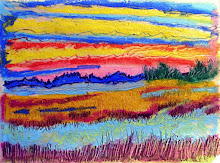Religious Civil Law
I pray for health
and that offends
the god of the parasite.
I want to kill the plagues.
But the grasshoppers also
have a god.
We are told we have
dominion over the earth
but other gods disagree.
We are told there is only One
and that is the one only for us.
Our chaos is our God's chaos.
But the god of chaos
has other plans
and advocates for our enemies.
In the great civil law suit of the universe,
does our God defend us
or do we defend our God?
First of all this is meant to be light, not heavy. It's logic is poetic logic (which resembled talmudic logic). With that in mind, this is what led me to it.
When I taught social psychology I used to teach that the civil justice system in many tribal cultures is witchcraft where witches serve as advocacy attorneys. Each tribe has a god or number of specialized gods to look after its interest and protect it. The witches were the agents of the gods. They would work to get their god to overcome the arguments of the other person's god.
Our world was not so different during the biblical period. We picked God (or allowed God to pick us) and then God was our God--representing God's interests through our interests (it's complicated hence the last verse). But when we kill our enemies, the god of our enemies is offended or defeated. Who's to say our interests are above those of our enemies.
The poem is about de-centering, taking the point of view of others, each of whom has a god.
Where Is the Center?
The pathogen rises
in its morning,
has its meal of
carbon rendering and
changes. Modifies
some DNA. It feels good.
Pathogen and mate
converse alien-fashion
about an earth beyond
what we can understand
(but still the earth).
As their meals
make themselves relevant
the pathogens flip
through information tunnels
and say their daily prayers.
